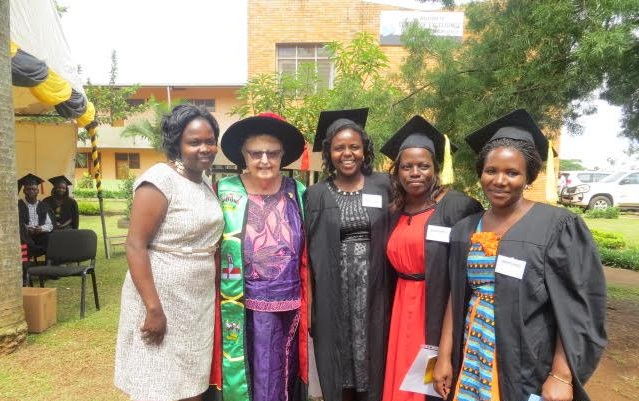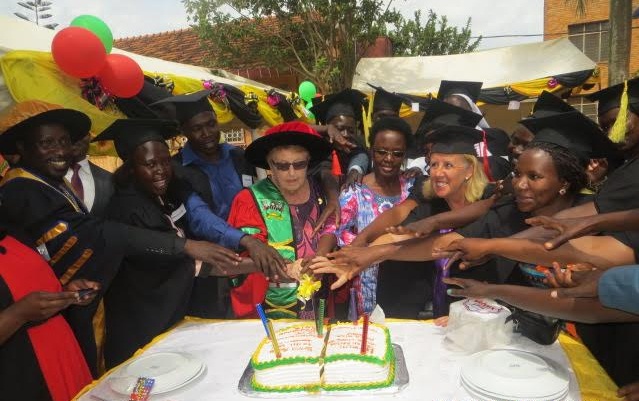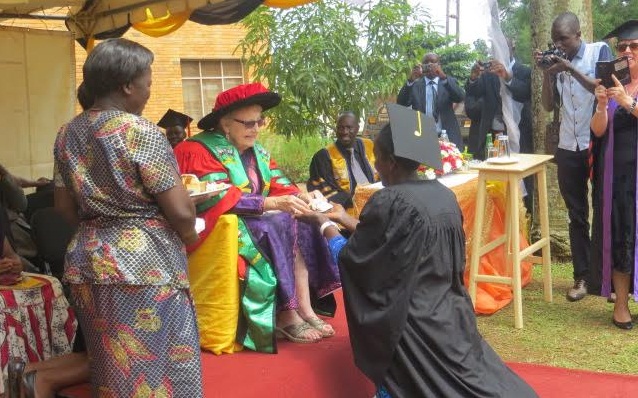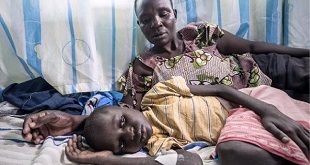




“All over the world, including Uganda, the need for palliative care is significant and growing because of the high prevalence of cancer, HIV/AIDS and increasing prevalence of non-communicable diseases. In Uganda most of the palliative care has been delivered by Hospice Africa Uganda which is the country’s pioneer Hospice. Uganda has so much to be than for from the work of HAU, which was founded by the visionary Prof. Anne Merriman in 1993. I am indeed honored to meet her face to face for the first time today.”
He told graduands: “Your graduation today means that you have demonstrated dedication, toughness, and perseverance to attain the academic standards set by the National Council for Higher Education,, for the award of the Diploma in Clinical Palliative Care.”
“You are now ready to go out to the communities where you live and work with confidence and prove that the qualification you have received today is not just a piece of paper, but testimony that you have acquired the necessary skills to deliver high quality and holistic palliative care to hundreds of our patients suffering from cancer, HIV/AIDS and other life limiting illnesses in Uganda with dedication and devotion.”
Acting Chief Executive Director of HAU, Dr Eddie Mwebesa reiterated the huge need for Palliative care in Africa and in Uganda and stated: “According to Worldwide Hospice and Palliative care Alliance in 2016, 40 million people worldwide need palliative care. 18 million die each year in severe pain and distress due to lack of access to palliative care and pain relieving medications. 78% of these live in middle and low income countries and 6% are children. 42% of countries in the world do not have any palliative care services.“
“Since its inception HAU has cared for over 26 000 people at its three sites in Uganda, (Kampala, Mbarara and Hoima), and it currently cares for over 4,600 patients annually. Through training and education we can deliver on the founding vision. But a lot more needs to be done to see that this happens.”
Prof. Stanley Acuda Wilson said the IHPCA is playing a vital role in training and educating doctors, nurses and healthcare workers in palliative care in Uganda and Sub Saharan Africa.
“The Institute was recognized by the National Council for Higher Education as a tertiary institution in 2009 and granted a provisional license to confer degrees and diplomas in affiliation with Makerere University. The Institute was granted the degree awarding Institution status in 2014 with a provisional license to award its own degrees and diplomas. This was a very important development and a great step forward to spreading the mission of palliative care.”
HAU founder Professor Anne Merriman said “despite the achievements by Hospice Africa Uganda in provision of palliative care services with meagre resources, there are a number of challenges which require government help in order to increase accessibility of palliative care in Uganda and fulfill HAU’s vision of palliative care reaching all in need in Uganda and Africa”.
This includes implementation of the 67th World Health Assembly Resolution of 2014 on strengthening palliative care as a component of comprehensive care throughout the life course and specifically development and implementation of a National policy to integrate palliative care across all levels of health care
 The Independent Uganda: You get the Truth we Pay the Price
The Independent Uganda: You get the Truth we Pay the Price


